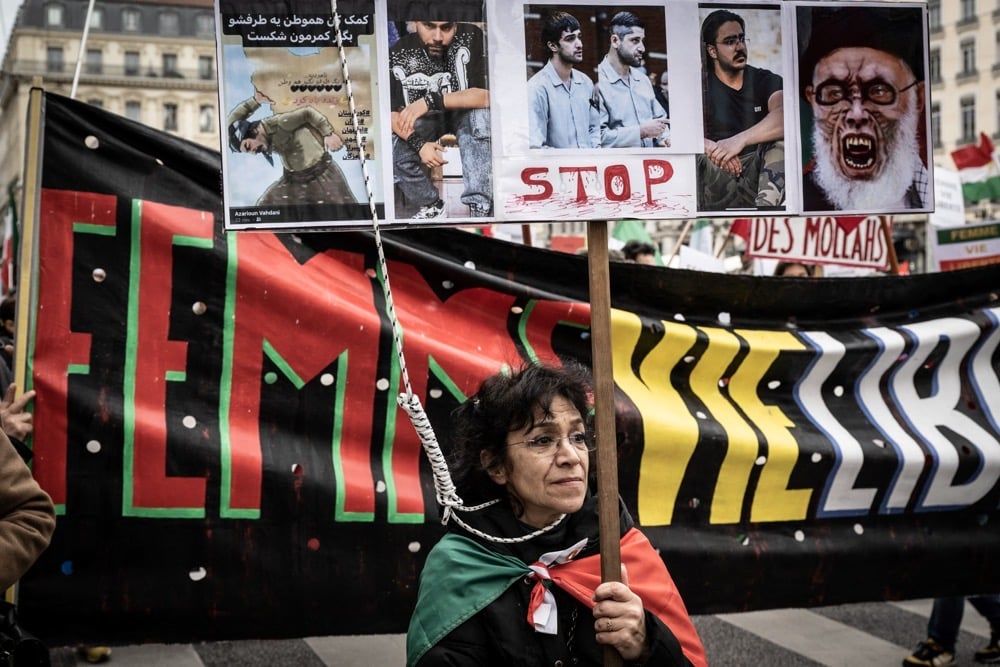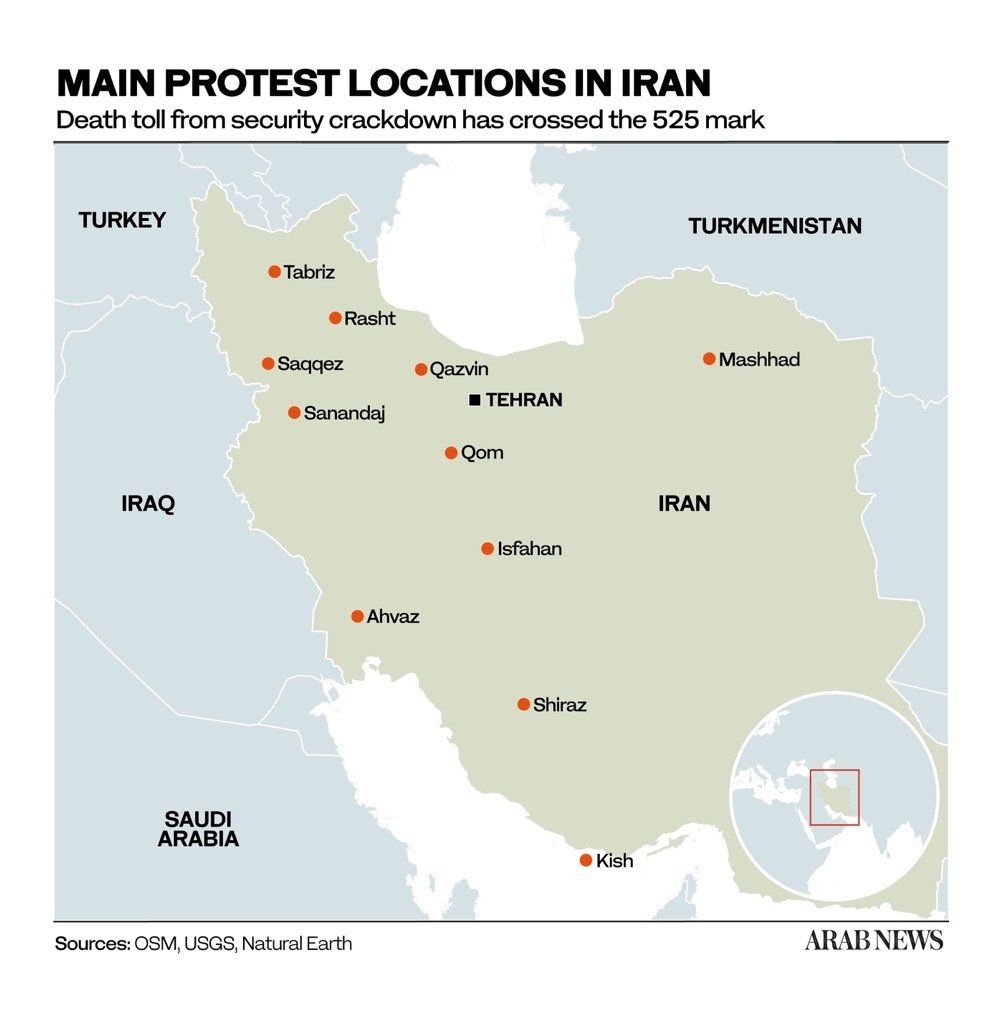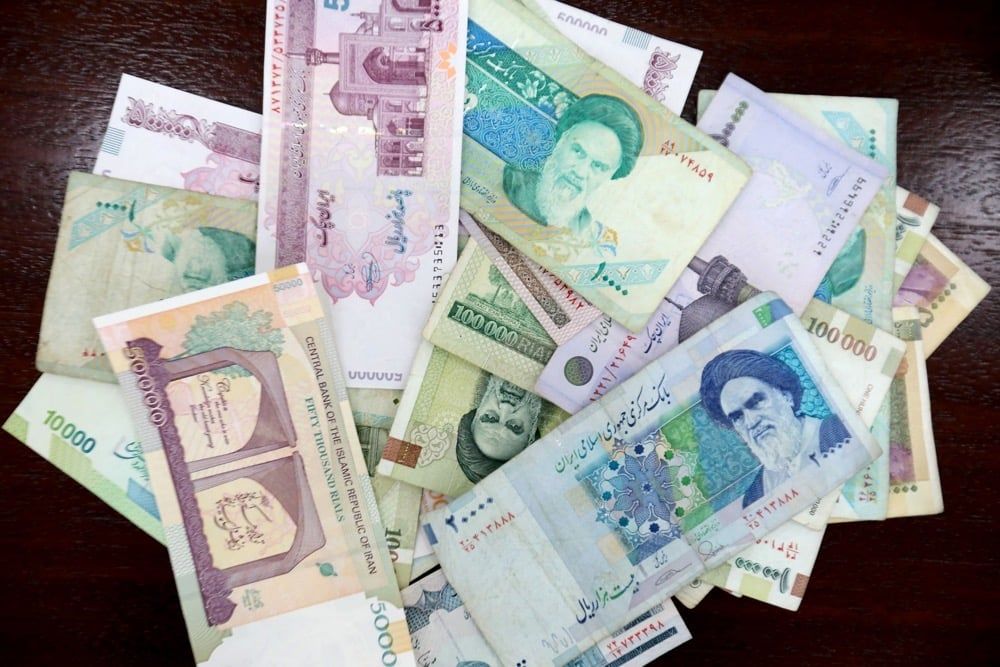
How currency collapse compounds Iranian regime’s crisis of legitimacy
Coming as it does on top of ongoing mass protests sparked by the death of 22-year-old JIna Mahsa Amini in police custody last September, the currency crash has defied measures such as the replacement of the central bank chief last month and fueled speculation that it would destabilize, or even bring down, the regime in 2023.
The rial has lost 29 percent of its value since anti-government protests and a harsh regime crackdown commenced late last year. On January 22, it was trading at around IRR450,000 against the US dollar, representing a new all-time low.
Dr. James Devine, associate professor in the Department of Politics and International Relations at Mount Allison University, believes it is Iran’s growing political isolation — due to its brutal crackdown on protesters, its military support for Russia’s war with Ukraine, and doubts about a revival of the 2015 nuclear deal — that has dragged down the value of the rial.
“All of this is compounded by mismanagement and corruption, which have dogged Iranian economic planning since the regime took power,” Devine told Arab News.
Although Iran’s economic situation seems particularly bleak at present, Emily Hawthorne, a senior Middle East and North Africa analyst at the risk intelligence company RANE, describes the rial’s depreciation as serious, “but certainly not unprecedented.”
“High inflation, international isolation, low investor confidence, and low consumer confidence are all driving the decline,” she told Arab News.
The double blow of a depreciating rial and high inflation has
triggered a cost-of-living crisis, which in turn has spread discontent
and stoked anger at the regime.
 More protests are expected due to rising prices and a scarcity of goods for Iranian consumers.
More protests are expected due to rising prices and a scarcity of goods for Iranian consumers. “Those who yearn for the pre-1979 Iran, for instance, usually like to talk about how a US dollar was worth IRR70 — as opposed to more than 450,000 today,” Azizi told Arab News.
“It also continues to have a real downward effect on wages, which have not nearly kept up with inflation and with the fall of the currency.
“Much in Iran is imported and paying for these imports has become increasingly difficult for individuals and companies. It has also made foreign travel very hard for most Iranians, even for nearby places such as Dubai and Turkiye, although the latter has also seen its own currency collapse.”
According to Hawthorne, the “poor and fragile” state of the global economic environment makes this period worse than previous ones and creates “additional external pressure on the Iranian economy.”
“Also, some Iranians feel growing anti-government anger, as reflected in the Mahsa Amini protests and some recent organized labor strikes and demonstrations, which contributes to the sense of economic insecurity,” she said.
However, Hawthorne is doubtful that new EU sanctions against the IRGC would “have a significant impact on the rial, beyond the downward pressure already created by increasing sanctions from Europe on other Iranian individuals and entities.”
For his part, Devine is convinced that with increasingly aggressive sanctions “there is a cumulative effect that is becoming serious for the regime.”
However, while the currency collapse has piled further pressure on Tehran, he is not sure it is the regime’s “most vulnerable spot.”
“I have not seen any clear sign that the currency collapse or the sanctions represent the final straw for the IRGC,” Devine said. “The IRGC controls between 25 percent and 40 percent of the Iranian economy, so they will still have access to goods and services within Iran.”
Given this privileged position, the IRGC is best placed to take advantage of black markets and smuggling, according to Devine. And while it is undoubtedly feeling the pressure, neither its leaders nor rank and file are likely to consider changing course or defecting from the regime.
Devine added: “If the regime goes, the IRGC goes with it. It has no raison d’etre without the Islamic Republic. Moreover, if there was a change in government, the IRGC leadership would likely face prosecution at home and/or abroad.
“At the lower levels of the rank and file, there may not be the same ideological commitment or privilege, but they are still better off than the average Iranian and the post-regime future is uncertain for them as well.
“In short, it will take a lot to decouple the IRGC and security services from the regime.”
While the growing global consensus against Iran does not include China and Russia, the ability of the two non-Western powers to help reverse the rial’s decline is open to question.
“China and Russia share with Iran a dislike for unilateral sanctions from any one country or institution and are likely to continue transacting with Iran, especially Russia, which is also isolated from the rest of the global community due to sanctions linked to its invasion of Ukraine,” Hawthorne told Arab News.
“However, this won’t provide enough of a lifeline for Iran to help the rial stay afloat. Rather, it could provide some trade and some exchange of goods and equipment but won’t save the economy.”

Devine also believes that although Iran is selling a “healthy” number of barrels per day of oil, mainly to China, this is unlikely to be enough to “reinvigorate the rial.”
Furthermore, Washington has begun clamping down on Iran’s smuggling of dollars from neighboring Iraq, which is also negatively affecting the rial’s value.
“While Russia and China may not be able to bail out the rial, they can make sure that going forward, Iran will not be as economically isolated as it was in the past,” Devine said.
Hawthorne predicts there will be more “economically motivated protests” in Iran throughout 2023, but doubts the Iranian government will collapse this year or in the near future, “even though economic strain will contribute to its unpopularity.”
Azizi also says “the regime has long survived harsh economic crises and this isn’t an exception either.” He added: “It adds to its problems, but it doesn’t seem to lead to state collapse just yet.”
Devine expects more protests due to rising prices and a scarcity of goods for Iranian consumers, which will further undermine the regime’s legitimacy and make it more reliant on coercive power to maintain its control.
But whether or not this is a tipping point for the regime is a much more complicated question.
“I think the regime has the institutional and coercive capacity to survive the current level of unrest and probably quite a bit more,” Devine said. “However, they could lose control if they make political mistakes.
 The rial has lost 29 percent of its value.
The rial has lost 29 percent of its value.
“For instance, if they overreact to the protests and begin killing large numbers of Iranians in the street, particularly young women. The execution of dissidents also has the potential to cause a backlash.”
Devine believes the “complicating factor” at play is the “coherence of the regime.”
“Reformists and moderates have criticized (President Ebrahim) Raisi for being too hard on the protesters and by the hardliners for being too soft,” he told Arab News. “This kind of environment could lead the regime to mis-calibrate its response.
“At a certain point, the more moderate members of the regime may go beyond criticism and disown the regime. If enough of them do that, it could snowball into a crisis, particularly if the regular military joins.”
In the meantime, Devine says, the protesters require better organization. While they can create “small disturbances,” he added, they do not seem to have the kind of organization that could really challenge the regime’s “control of the country and economy.
“Perhaps the currency crisis will provide the impetus for this to happen, but I have not seen it yet.”











